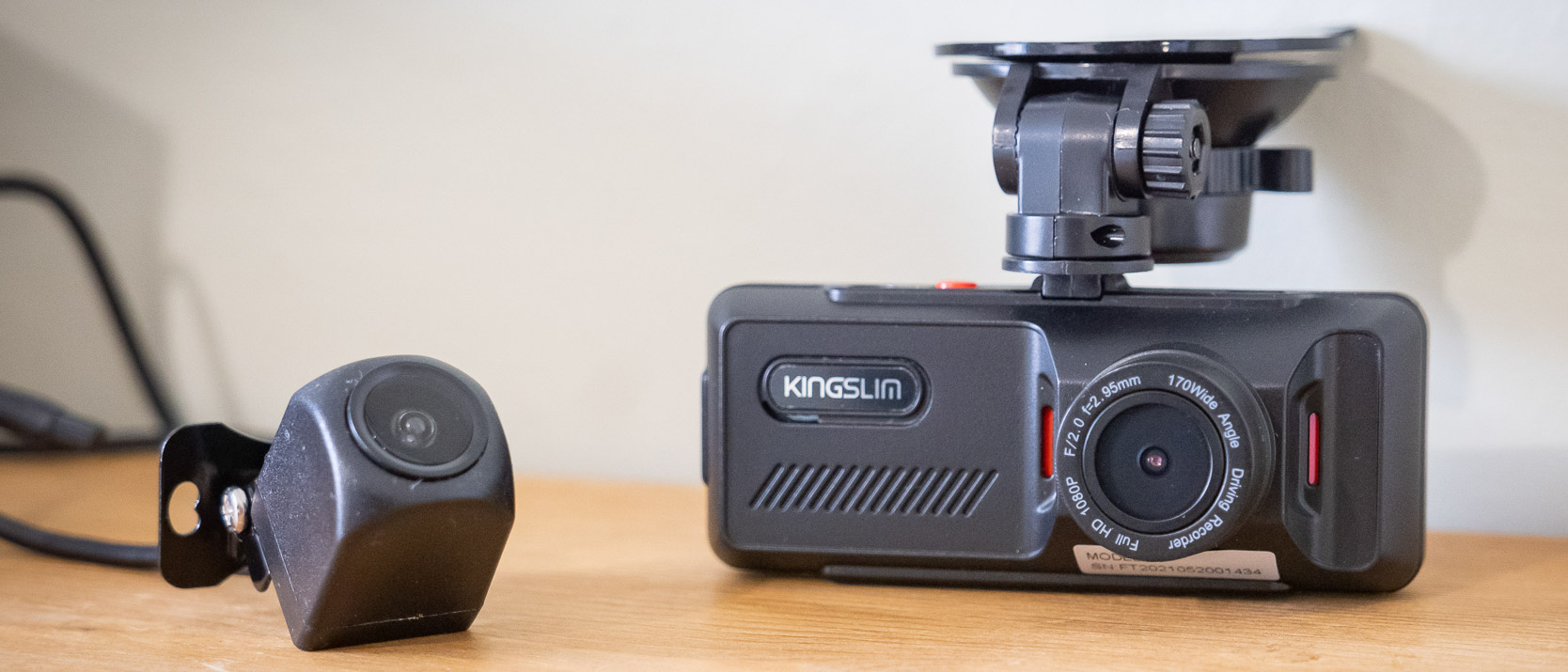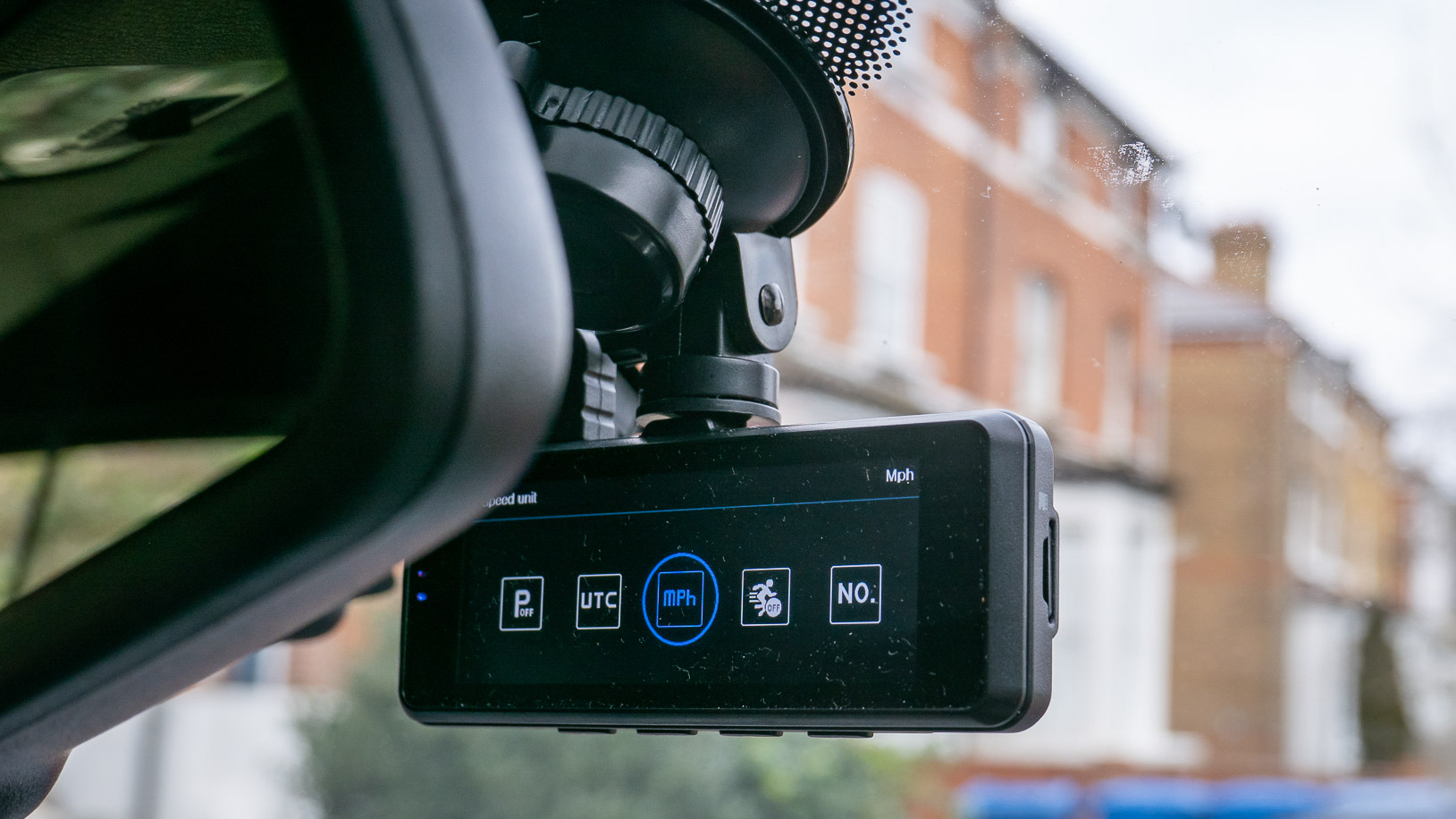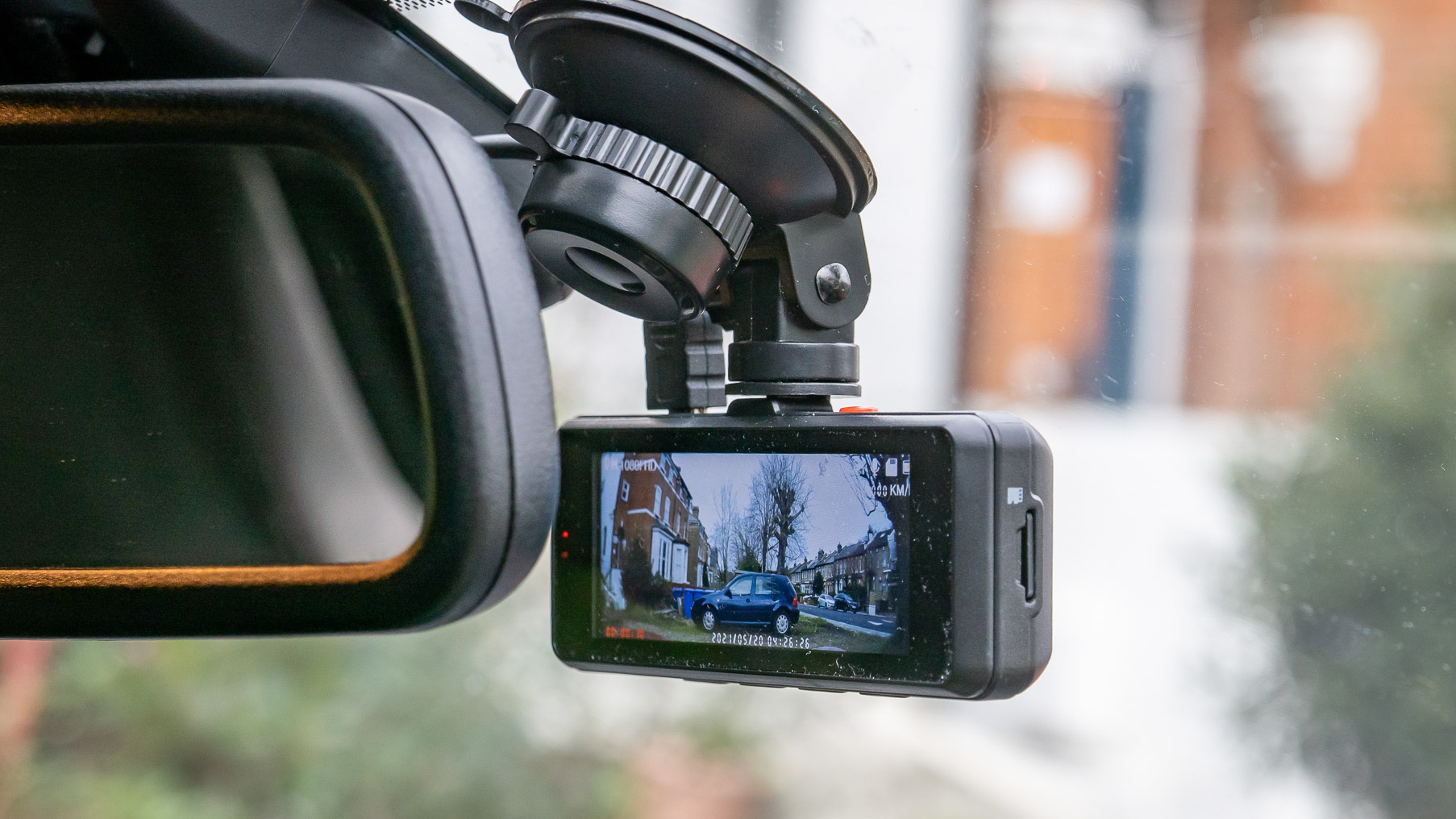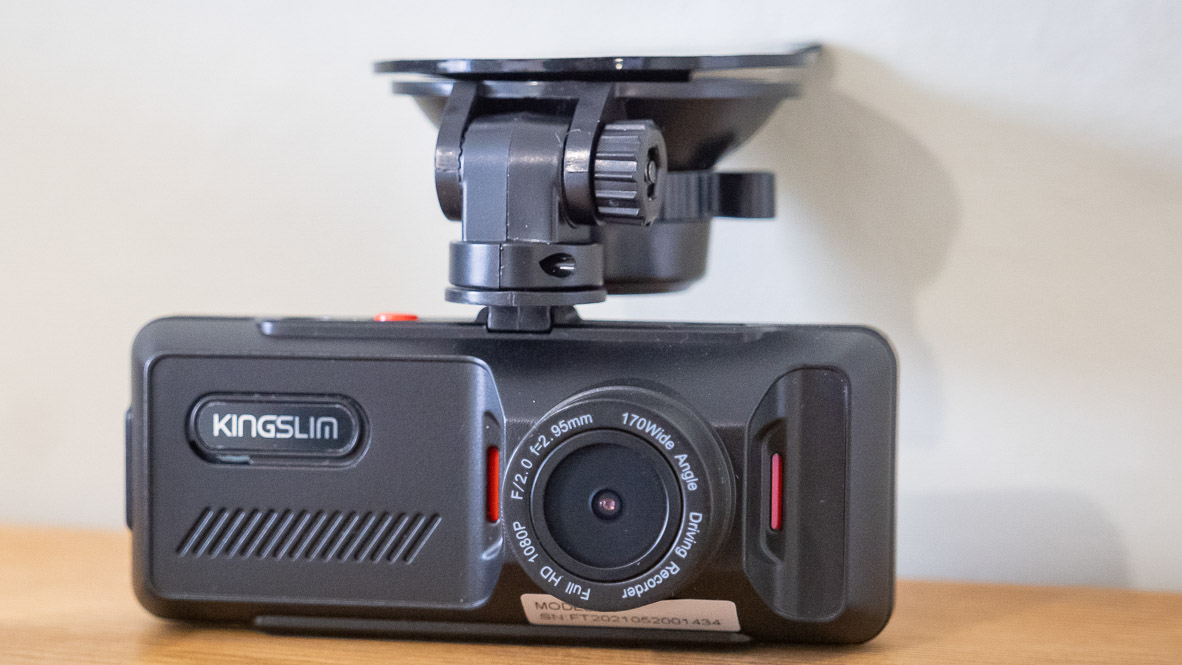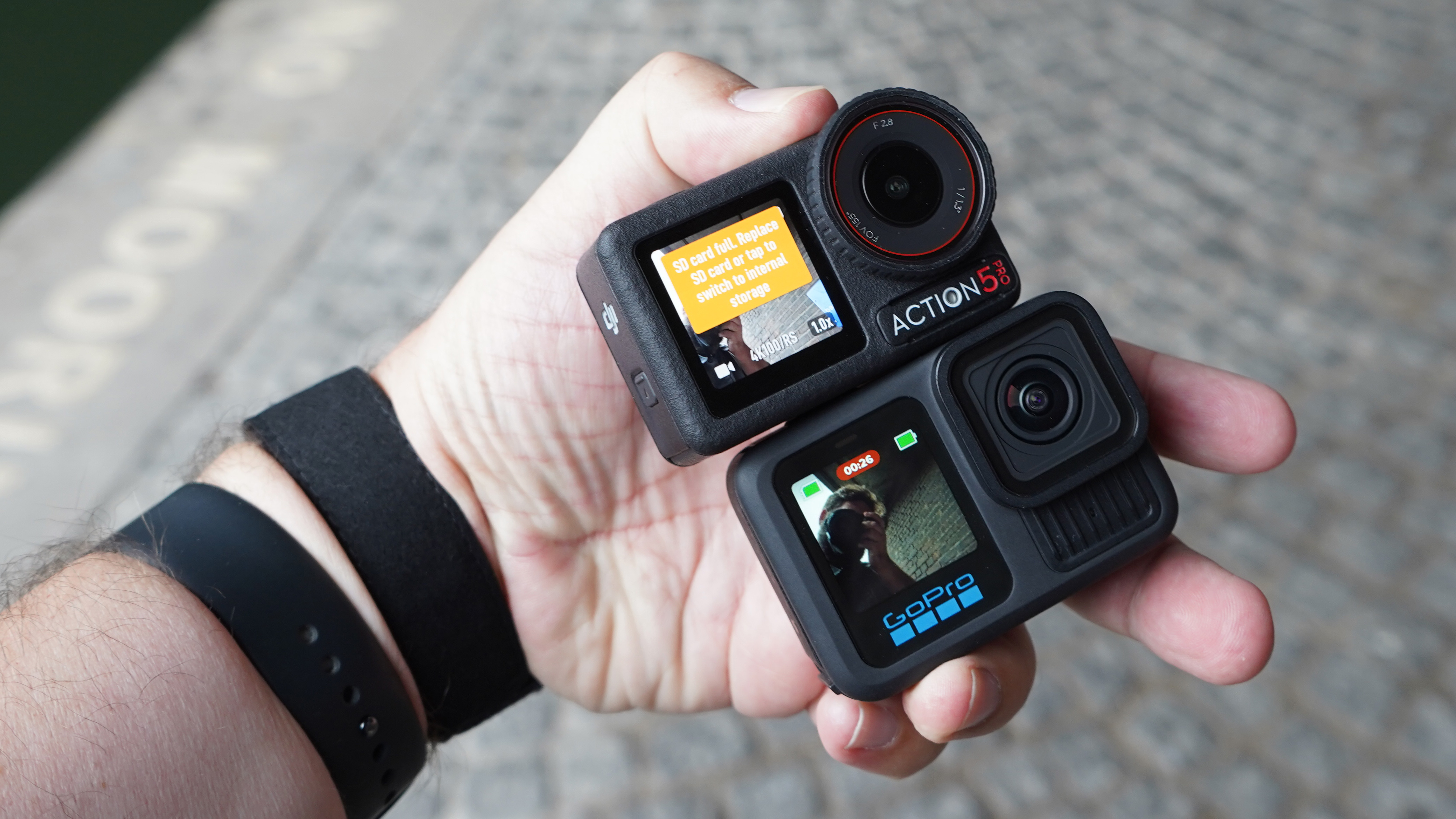Digital Camera World Verdict
The Kingslim D1 is a dual-camera dash cam system that includes GPS and a wide, 170-degree front lens for around $80. This represents good value for money, and while the camera operates well, it is let down by poorly-labelled buttons and video quality that doesn’t live up to what buyers should expect from 1080p Full HD.
Pros
- +
Compact design
- +
Wide front lens
- +
GPS
Cons
- -
Below-par video quality
- -
Poorly labelled buttons
- -
Rear camera only 720p HD
Why you can trust Digital Camera World
The standout feature of this dash cam system is its low low price. The Kingslim D1 includes GPS, a rear camera and a wide front-facing lens for a price tag of around $80 / £75 / AU$135. That makes it, on paper, one of the best value budget dash cams around.
Kingslim D1: specifications
Resolution: 1080p (forward), 720p (rear) at 30fps
HDR: No
Field of view: 170 degrees (front), 140 degrees (rear)
Display: Yes, 3.2in IPS, non-touchscreen
Battery: No
Voice control: No
The best camera deals, reviews, product advice, and unmissable photography news, direct to your inbox!
GPS: Yes, attached to power cable
See also: Kingslim D4 dash cam review
Key features
Although GPS isn’t strictly integrated, the module is attached to the included power cable and can be attached to your windscreen, or elsewhere in the cabin. ANother stand-out feature is the width of the front lens. At 170 degrees it is wider than most other dash cams we have reviewed and falls only slightly short of the market-leading Garmin Dash Cam 67W, which offers a 180-degree view of the road ahead.
Lastly, a third key feature of this Kingslim kit is the inclusion of a rear camera. It only shoots at 720p HD, and through a narrower 140-degree lens, but it’s a handy addition for those who want it. The rear camera can either be mounted to the exterior of your car with screws and an included bracket, or stuck to the inside of the rear screen with an included adhesive pad.
Build and handling
What stands out most here is the D1’s compact size. Far too many dash cams take up an unnecessary amount of windscreen space, restricting the driver’s view. That isn’t the case here. As the D1 adopts a sensible wide-but-shallow design that should hide neatly behind the rear-view mirror of most vehicles.
The entire rear is taken up by a letter-box shaped display, which is handy for getting the camera’s position right when mounting it. Footage can also be viewed on the screen, but we prefer to transfer our recordings to a computer, via the included 32GB microSD card for a clearer view.
Four buttons on the underside of the D1 are used to navigate the menu. These are confusing at first, as they are labeled very poorly, with their icons almost invisible to our eyes. However, after a few minutes of trial-and-error, we had the system set up. As with other dash cams, there’s no need to do anything after this – just turn the car on and the D1 starts recording; these recordings are then saved when a collision is detected.
Strangely, there is no manual recording button. So if you see an incident ahead and want to save footage, this isn’t possible. Recordings are only saved when the g-sensor detects an incident.
The windscreen mounts work well enough, and doesn’t take up masses of space, but the way it connects to the camera itself feels quite cheap. It lacks the satisfying tactility of pricier systems.
Performance
Footage from the front-facing camera isn’t the best we have seen. Despite it technically being 1080p Full HD, the image sensor struggles to provide much in the way of clarity. Recordings made on a bright but overcast day were noisy and pixelated, with crucial details like vehicle number plate and street signs only legible (when paused) from about 15 feet.
The footage will still clearly show what happened in a collision, but finer details could well be lost. It’s just about acceptable – and we mustn’t forget the low price of the Kingslim D1 – but readers should consider upping their budget if they want footage that truly feels like Full HD.
Another annoyance is how footage is recorded using .avi files, which cannot be played on a Mac without downloading a third-party video player. We found they played just fine in VLC, a free media player app, but discovering they wouldn’t play by default was frustrating.
Otherwise, the D1 works just fine. It boots up quickly when the car is switched on, splits footage into three-minute chunks, and quietly gets on with its job without distraction.
Kingslim D1: Verdict
The low price is a crucial factor here. If you really want to spend as little as possible on a dual-camera system with GPS, then the D1 ticks that particular box. At around $80 / £75 it’s good value for money given the features on offer, and the 170-degree front-facing lens.
But video footage falls short of what many customers might expect when they see 1080p on the specification sheet. Recordings are acceptable, but demonstrate how closely image quality correlates with cost.
Read more guides:
Best dash cams
Best front and rear dash cams
Best Uber dash cams
The best camera phones today
Best indoor security cameras
Best outdoor security cameras
The best action cameras
The best helmet cameras
Best backup camera
Alistair has been a journalist since 2011 and used to be Deputy Technology Editor at IBTimes in London. His specialist tech subjects include smart home gadgets, phones, wearables, tablets and dashcams. He is the host of The AutoChat Podcast.
